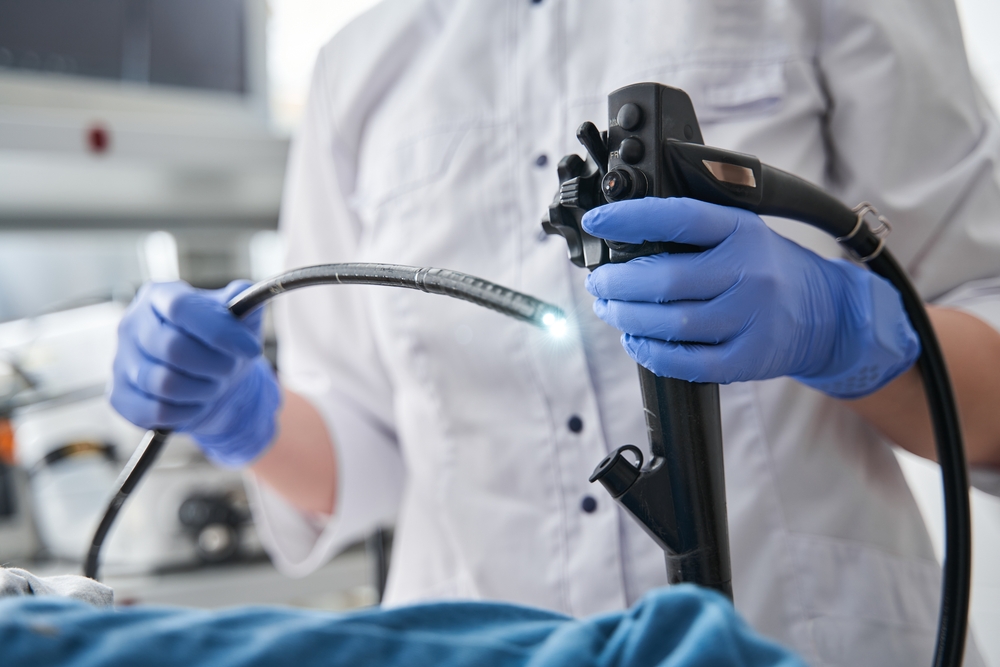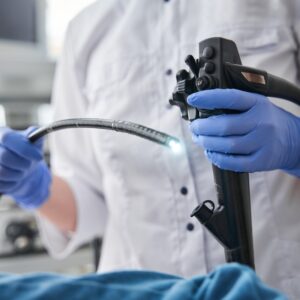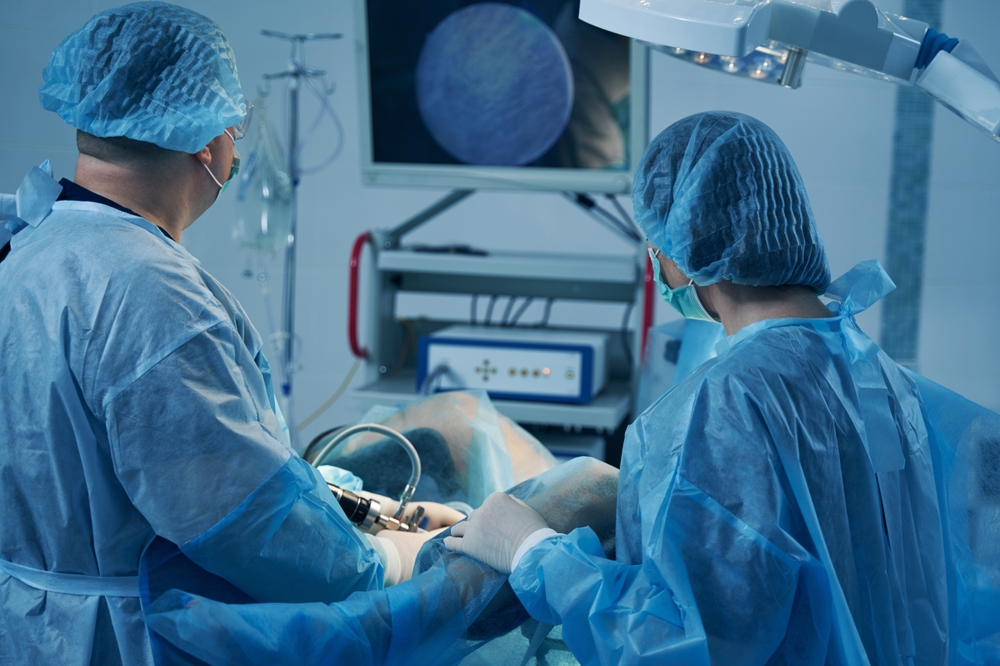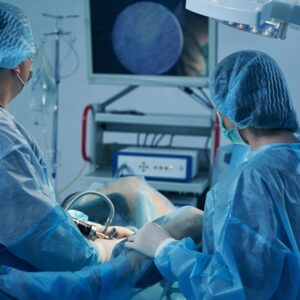When should you consider getting tested?
If any of the following symptoms occur, it could be a warning sign of kidney problems. It is important to seek medical attention immediately and undergo a series of detailed tests to identify the underlying cause.
- Burning sensation during urination
- Increased frequency of urination
- Presence of blood in the urine
- Swelling in the lower extremities
- Swelling around the eyes and face, accompanied by back pain
- High blood pressure
Who is at higher risk and should consider testing?
If you have any of the following factors, it may increase your risk of developing chronic kidney disease. It is advisable to consult a doctor and undergo regular testing:
- Advanced age (40 years or older)
- Long-term smoking
- Family history of kidney disease
- Structural abnormalities of the kidneys
- Regular exposure to cadmium, trichloroethylene, asbestos, or petroleum due to occupational reasons
- Obesity (BMI > 30)
- Regular use of medications that may harm the kidneys
- Diabetes
- High blood pressure
- Heart (cardiovascular) disease
- Regular use of over-the-counter or pain medications
- African-American, Native American, or Asian-American ethnicity
Kidney function self-assessment
If you suspect kidney problems, you can self-assess whether you have the following symptoms:
| Self-assessment method | Symptoms |
| Do you have swelling? |
|
| Are there any abnormal urine characteristics? |
|
| Do you experience back or loin pain? |
|
| Do you experience fatigue or headaches? |
|
| Does your complexion look unhealthy? |
|
| Do you have difficulty seeing nearby objects? |
|
However, self-assessment may not be accurate. If you suspect kidney function problems, it is important to seek professional advice from a doctor.
Methods of kidney function testing and common diagnostic indicators
Early-stage chronic kidney disease may not present any symptoms, and problems can only be detected through testing. The following are 6 key indicators used to measure kidney function:
| Indicator | Test | Normal Range |
| Creatinine | Creatinine is a waste product produced by muscles. Doctors compare the level of creatinine in a urine sample to that in the blood to assess how much waste the kidneys are filtering out | Female:Below 1.2 Male:Below 1.4 |
| Blood Urea Nitrogen (BUN) | Urea nitrogen is a waste product in the body that is produced as proteins break down. An elevated level indicates that the kidneys are not effectively filtering out these waste products | 7 – 20 mg |
| Glomerular Filtration Rate (GFR) | The rate at which blood is filtered by the kidneys. | Higher than 60 |
| Urinary Protein | Excessive excretion of albumin in the urine indicates abnormal kidney function | 90-120ml/min |
| Urinalysis Analysis | Analysis of urine sediments, including blood, pus, bacteria, glucose, and protein. Normal sediment should not be present. The presence of sediment indicates possible kidney or bladder infection, kidney disease, kidney stones, or diabetes. | Normal sediment should not be present. The presence of sediment indicates possible kidney or bladder infection, kidney disease, kidney stones, or diabetes. |
| Blood Pressure | Measurement of the pressure exerted on the blood vessels during heart function. | <140/90 mmHg |
In addition to these indicators, doctors may perform other tests to accurately assess a patient’s kidney function. The following are common diagnostic procedures:
Principle:
Assess the overall health condition of a patient by extracting blood samples. This test ensures the safety of patients with renal cancer, as it helps evaluate their anemia levels and reduces the risk associated with various treatments.
Purpose:
The main parameters examined in a blood test are urea nitrogen and creatinine (normal range: 0.7~1.4 mg/dl). Higher values indicate poorer kidney function.
Suitable Individuals or Cases:
Not recommended for individuals who have recently undergone physical therapy.
Principle:
Extract urine samples from patients and send them to the laboratory for analysis.
Purpose:
The goal is to detect the presence of “proteinuria.” In healthy adults, the daily protein excretion in urine should be ≤150 mg.
Principle:
Uses high-frequency sound waves and a computer to create images of blood vessels, tissues, and organs.
Purpose:
The aim is to detect structural issues in the kidneys, measure kidney size, identify kidney stones or tumors, and assess for enlargement or shrinkage of the kidneys.
Principle:
An X-ray examination of the urinary tract that involves injecting a contrast agent to visualize the kidneys, bladder, and the tubes (ureters) that transport urine from the kidneys to the bladder.
Purpose:
Used to diagnose potential urinary tract conditions such as kidney stones, bladder stones, enlarged prostate, renal cysts, or urinary tract tumors.
Suitable Individuals or Cases:
Some individuals may experience side effects from the injection of X-ray contrast agents. Pregnant women should inform their doctors about their pregnancy.
Principle:
An invasive procedure where a needle is inserted into the kidney to extract a small tissue sample.
Purpose:
Assists in disease diagnosis, guides medication treatment, and determines prognosis. Helps understand the severity of kidney disease.
Suitable Individuals or Cases:
When the aforementioned imaging tests are not clear enough for surgery, doctors may consider a biopsy for live tissue examination.
Cost of Renal Function Tests:
The following table lists the prices of common renal function tests at four private hospitals. The diagnostic services provided by each hospital may not be identical. Factors such as room type, inclusion of contrast agents, etc., can also affect the prices. For accurate and detailed pricing, it is recommended to directly inquire with the hospitals.
| Private Hospital | Examination Item | Fees |
| Hong Kong Sanatorium & Hospital | Union Hospital Renal Function Test (urea/creatinine/sodium/potassium/chloride/bicarbonate) | HK$140 起 (per examination item) |
| Urinalysis | Starting from HK$190 | |
| Ultrasound Scan (Kidneys and Bladder) | Starting from HK$3,820 | |
| Cystoscopy | Starting from HK$23,067 | |
| Gleneagles Hong Kong Hospital | Renal Function Test | Starting from HK$640 |
| Urinalysis | Starting from HK$160 | |
| Ultrasound Scan (Kidneys and Bladder) | Starting from HK$1,590 | |
| Voiding Cystourethrogram | Starting from HK$4,410 | |
| Cystoscopy +/- Biopsy | Starting from HK$21,133 | |
| Saint Teresa’s Hospital | Renal Function (urea, creatinine, total protein, albumin, albumin-to-globulin ratio, sodium, potassium, chloride, bicarbonate) | Starting from HK$630 |
| Urinalysis | Starting from $155 | |
| Cystoscopy | Starting from HK$2,700 | |
| Ultrasound Scan (Kidneys) | Starting from HK$1,000 | |
| Hong Kong Baptist Hospital | Blood Test | Starting from HK$420 |
| Urinalysis | Starting from HK$180 | |
| Ultrasound Scan (Kidneys) | Starting from HK$1,040 |
- NoteThe above price information is for reference only (updated as of February 3, 2023).
FAQ
Kidney function can be reflected by the levels of creatinine and urea in the blood. Elevated levels indicate a decline in the function of both kidneys. If serum creatinine reaches 140 umol/L (1.6 mg/dl), it means the kidney function has declined by 50%.
Chronic kidney failure can be divided into the following four stages. When kidney function falls below 25% of normal, uremia appears, leading to kidney failure.
| 階段 | 腎功能指數 |
| Renal Insufficiency | 51% – 80% of normal renal function |
| Renal Impairment | 25% – 50% of normal renal function |
| Renal Failure | 15% – 25% of normal renal function |
| Late-stage Renal Failure | 10-15% of normal renal function |
Since the symptoms of kidney disease and renal failure are not apparent, multiple tests are often required for a clear diagnosis of kidney function. Therefore, the aforementioned tests can be performed together, and conducting different tests can help doctors identify signs of kidney dysfunction.
- 1Mayo Clinic
- 2National Institute of Diabetes and Digestive and Kidney Diseases
- 3Mayo Clinic
- 4Cleveland Clinic





